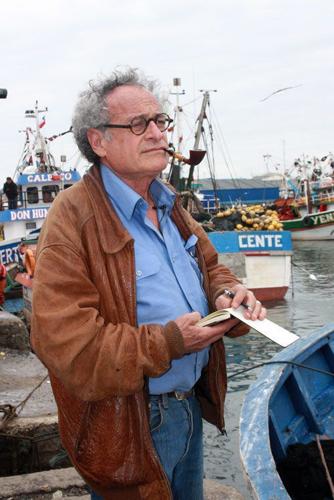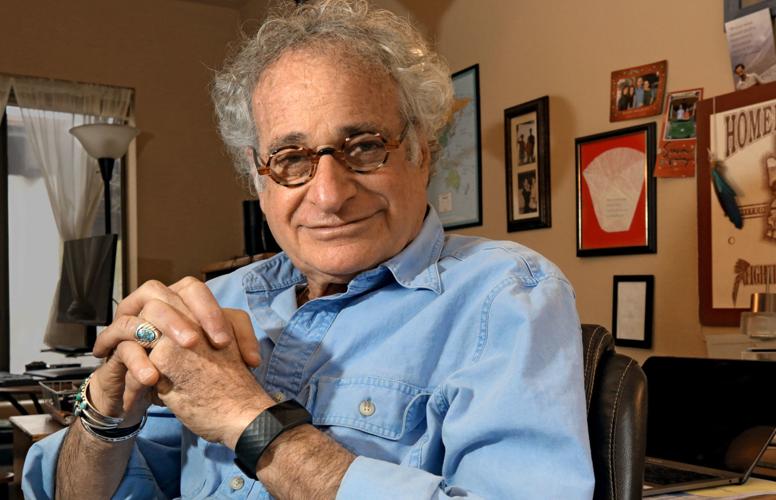There’s an unmistakable irony to the world we live in today: We have more speed-of-light access to information than ever before and yet, we’ve never been so badly misinformed.
It’s not even so-called “fake news” that’s driving this misinformation, says decorated foreign correspondent Mort Rosenblum; it’s the lack of reporting, the underreporting and the inability of you and I to find those stories that will have impact on our lives.
Over five weeks beginning Jan. 9, Rosenblum, the retired Associated Press foreign correspondent and bureau chief who grew up in Tucson and has reported on wars, politics and human suffering on seven continents in his 50-plus-year career, will give Tucsonans the tools to seek out the international stories that influence their lives.
“My idea is to try to equip people who care with a good, basic structure, an idea of how to follow foreign news that matters. With that structure, people can then go off in any direction on their own and learn an enormous amount,” Rosenblum, 75, said in describing his class, “Keeping Tabs On A Mad World: A Correspondent’s Guide to Global News That Matters,” presented by the University of Arizona’s Community Classroom series. Classes will be held on Wednesdays at the Loft Cinema.
“Rather than try to convert the masses to change the system, which isn’t going to go very far, my idea is to equip people who actually care with the tools and the enthusiasm to be able to learn things for themselves,” added Rosenblum, who teaches an international journalism class each spring at his alma mater, the UA School of Journalism.
Rosenblum’s course is one of four being presented this winter as part of the UA College of Social & Behavioral Sciences Community Classroom series. The college launched the program last fall with five courses including Noam Chomsky’s “Language, Mind and Brain,” a course that was open to UA students for credit and to the community at large.
The winter series includes classes on Islam, politics and the pursuit of happiness — all of which fit neatly under the umbrella of the session’s theme of critical thinking, said Maribel Alvarez, the college’s associate dean for community outreach. Several of the courses offer college credits.
“The more information we have the more we remain hungry for quality information and the ability to discern,” she said.
Rosenblum’s 90-minute classes will include lectures and video and audio interviews with international journalists including CNN’s Christiane Amanpour. Although he likely will broach the topic, the class is not about fake news.
“Fake news has always been there,” said Rosenblum, who spends about three months a year in Tucson and the rest of the year living on a boat docked in Paris. “My first job was at the Star in the ’60s. People would call in with stuff — that was citizen journalism — and you would check it out. If it sounded stupid, it probably was. Now it’s just much more sophisticated. Fake news is usually easily detectable and ignored. The real problem is badly reported and unreported real news, and that’s what I am focusing on.”
High on that list of underreported stories and ignored stories: global warming and its trickle-down impact worldwide, he said. Climate change, or in Rosenblum’s words “global overboiling,” is “real. It’s not a question of denying it or not, it’s not an opinion; it’s dead real.”
And the impact of global warming can be felt worldwide, from the decline and downright decimation of agriculture brought on by drought in some areas, flooding and natural disasters in others, to immigration.
“People on the move is an important story. We think that if we put up a wall ... on the border … we’re going to solve the problem. But there are tens of millions of people on the move” attempting to improve their lives and escape everything from the environmental impact of climate change to fleeing war-torn countries, Rosenblum said. “But they are moving, creating problems around the world. If you shut off your borders and refuse to let any of them in, it’s not like they are going to disappear. They are going to sit and fester in camps and become terrorists. The policies that we are following are creating terrorists at a geometric rate. They are creating people who hate us, people who, with obvious reasons, do not wish us well.”
This is the second time that the College of Social & Behavioral Health, which includes the UA School of Journalism, has offered the community courses. It launched the series last fall with courses on photography, social media, Tucson’s film history and a course by famed linguist Noam Chomsky.
Alvarez said they will announce more classes for the spring, likely to begin sometime in March.







